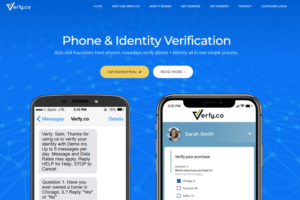Many people have reported receiving phone calls from a company called Credence. These calls can be alarming, especially if you are not familiar with the company or the reason for the call.
It is important to understand who Credence is and why they might be calling you.
Credence is a resource management and debt collection agency that operates across the United States.
They work with a variety of clients, including telecommunications companies, financial institutions, and healthcare providers, to help collect outstanding debts.
If you have an outstanding debt with one of their clients, it is possible that Credence may attempt to contact you via phone or other means of communication.
However, it is important to note that they are required to follow certain regulations and guidelines when attempting to collect a debt.
If you believe that Credence is not following these guidelines, there are steps you can take to stop the calls.
Debt Collection and Credence

Credence and Debt Collection
Credence Resource Management is a debt collection agency that operates in the United States. They are licensed and headquartered in Dallas, TX.
Debt collection agencies like Credence are hired by creditors to collect unpaid debts from consumers. When a consumer defaults on a debt, the original creditor may sell the debt to a debt collection agency like Credence. The debt collection agency will then try to collect the debt from the consumer.
Debt collection agencies like Credence have been known to use aggressive tactics to collect debts. This can include calling consumers multiple times a day, using threatening or abusive language, and even contacting the consumer’s employer or family members.
However, debt collection agencies are required to follow certain rules and regulations when collecting debts. For example, they are not allowed to harass consumers, use false or misleading statements, or threaten legal action that they cannot take.
Dealing with Debt Collectors
If a consumer receives a call from a debt collector like Credence, there are certain things they can do to protect themselves. First, they should ask for written verification of the debt.
The debt collector is required to provide this within five days of their initial contact. The written verification should include the amount of the debt, the name of the creditor, and a statement informing the consumer of their right to dispute the debt.
If the debt is valid, the consumer should try to negotiate a payment plan with the debt collector. They can also request that the debt collector stop contacting them. This is known as a cease and desist letter. However, the debt collector may still take legal action to collect the debt.
Consumers should also be aware of their rights under the Fair Debt Collection Practices Act (FDCPA). This federal law regulates the behavior of debt collectors and provides certain protections to consumers.
For example, debt collectors are not allowed to contact consumers before 8am or after 9pm, unless the consumer agrees to it. They are also not allowed to contact the consumer at work if they are told not to.
Why Are You Getting Calls From Credence?

Credence is a debt collection agency that is authorized to collect debts on behalf of various companies. If you are receiving calls from Credence, it is likely because you have an outstanding debt that needs to be paid.
There are several reasons why you might be getting calls from Credence. The most common reason is that you have an unpaid debt that has been sent to collections. This could be a credit card debt, a medical bill, or a loan that you have not paid back.
Another reason why you might be getting calls from Credence is that they have the wrong number. If this is the case, you can simply tell them that they have the wrong number and they will stop calling you.
It is important to note that debt collectors like Credence are required by law to follow certain rules and regulations when collecting debts. For example, they are not allowed to call you before 8 a.m. or after 9 p.m. They are also not allowed to harass or threaten you in any way.
If you are receiving calls from Credence and you are not sure why, it is important to talk to them and find out what the debt is for. You can also request that they provide you with written documentation of the debt so that you can review it and make sure that it is legitimate.
Overall, if you are receiving calls from Credence, it is important to take them seriously and address the issue as soon as possible. Ignoring the calls will only make the situation worse and could potentially harm your credit score.
Understanding Credence Phone Calls
What is a Credence Phone Call?
Credence phone calls are typically made by Credence Resource Management, a debt collection agency. These calls are made to individuals who have unpaid debts, and the agency is attempting to collect payment. Credence Resource Management is a legitimate company that has been in business since 2013, but they have received complaints about their collection practices.
How to Identify a Credence Call
When receiving a call from Credence Resource Management, the caller will identify themselves as a representative of the company. They may ask for personal information, such as your name and address, to confirm that they are speaking with the right person. They will also inform you that they are calling about an unpaid debt and ask you to make a payment.
It is important to note that Credence Resource Management may use different phone numbers to contact you. If you are unsure if a call is from Credence, you can ask the caller to verify their identity. You can also check the phone number against the ones listed on the company’s website.
If you do owe a debt, it is important to take the call seriously and work with Credence to resolve the debt. However, if you believe that the debt is not yours, or if you are being harassed by the company, you have the right to dispute the debt and file a complaint with the Consumer Financial Protection Bureau.
Scams and Harassment

Identifying Scams
Credence Resource Management is a legitimate debt collection agency that operates in compliance with the Fair Debt Collection Practices Act (FDCPA). However, scammers may pose as Credence representatives to deceive people into giving away their personal information or making payments for debts they do not owe. To avoid falling victim to scams, people should be aware of the following:
- Caller ID Spoofing: Scammers may use technology to make it appear as if they are calling from a legitimate phone number, such as Credence’s. However, people should not trust caller ID alone as it can be easily manipulated.
- Threats and Intimidation: Scammers may use fear tactics to pressure people into making payments or providing personal information. They may threaten legal action, arrest, or harm to the person or their family members.
- Unsolicited Calls: Scammers may call people who do not owe debts to Credence or any other debt collector. People should be cautious of calls from unknown numbers and should not provide personal information over the phone unless they can verify the legitimacy of the caller.
Dealing with Harassment
While Credence is a legitimate debt collector, people may still experience harassment or abusive behavior from its representatives. The FDCPA prohibits debt collectors from engaging in actions that are considered harassing, abusive, or unfair. If people experience any of the following, they can take action:
- Repeated Calls: Debt collectors cannot call people repeatedly with the intent to annoy, abuse, or harass them. If Credence calls people multiple times a day or at inconvenient times, they may be violating the FDCPA.
- False Statements: Debt collectors cannot make false statements or misrepresent themselves to collect debts. If Credence misrepresents the amount of debt owed or threatens to take actions that are not legally permitted, they may be violating the FDCPA.
- Abusive Language: Debt collectors cannot use profanity or other abusive language when communicating with people. If Credence uses derogatory or insulting language, they may be violating the FDCPA.
People who experience harassment or abusive behavior from Credence or any other debt collector can take the following actions:
- Ask for Verification: People can ask Credence to verify the debt in writing within five days of the initial phone call. Debt collectors must provide written verification of the debt, including the amount owed and the name of the original creditor.
- File a Complaint: People can file a complaint with the Consumer Financial Protection Bureau (CFPB) or their state’s Attorney General’s office if they believe Credence is violating the FDCPA. They can also consult with an attorney who specializes in debt collection harassment cases.
- Block Calls: People can block Credence’s phone number or use call-blocking apps to prevent further calls. They can also add their phone number to the National Do Not Call Registry to reduce the number of unsolicited calls they receive.
In conclusion, people should be aware of scams and harassment related to debt collection and take appropriate actions to protect themselves. They should also know their rights under the FDCPA and take action if they feel their rights are being violated.
Legal Aspects
Fair Debt Collection Practices Act
The Fair Debt Collection Practices Act (FDCPA) is a federal law that regulates the practices of debt collectors. Under the FDCPA, debt collectors are prohibited from using abusive, unfair, or deceptive practices when attempting to collect a debt. This law applies to third-party debt collectors, including Credence Resource Management (CRM).
Some of the prohibited practices under the FDCPA include:
- Contacting consumers at inconvenient times or places
- Using abusive or threatening language
- Misrepresenting the amount or status of a debt
- Failing to provide validation of a debt upon request
If Credence Resource Management violates the FDCPA, consumers have the right to sue the company and recover damages.
Telephone Consumer Protection Act
The Telephone Consumer Protection Act (TCPA) is another federal law that applies to debt collection practices. The TCPA regulates the use of automated telephone calls, text messages, and faxes for debt collection purposes.
Under the TCPA, debt collectors must obtain prior express consent before using automated calls or texts to contact consumers. If a consumer revokes their consent, the debt collector must stop using automated calls or texts.
If Credence Resource Management violates the TCPA, consumers have the right to sue the company and recover damages.
Consumer Rights and Protections
Consumers have several rights and protections under federal and state law when dealing with debt collectors like Credence Resource Management. These include:
- The right to request validation of a debt
- The right to dispute a debt
- The right to request that the debt collector stop contacting them
- The right to sue the debt collector for violations of the FDCPA or TCPA
- The right to be free from harassment or abuse
If Credence Resource Management violates any of these consumer rights or protections, consumers have the right to take legal action against the company.
It is important for consumers to know their rights and protections when dealing with debt collectors like Credence Resource Management. If they feel that their rights have been violated, they should contact a consumer protection attorney for assistance.
How To Put an End To Unwanted Calls From Credence Resource Management

Credence Resource Management is a debt collection agency that contacts individuals to collect unpaid debts. If you are receiving unwanted calls from Credence Resource Management, there are steps you can take to put an end to them.
Request a Cease and Desist Letter
One way to stop the calls from Credence Resource Management is to request a cease and desist letter. This letter will instruct the agency to stop all communication with you. You can request this letter by phone or by mail. Be sure to keep a copy of the letter for your records.
Write a Debt Validation Letter
Another way to stop the calls is to write a debt validation letter. This letter requests that the agency provide proof of the debt they are trying to collect. Once you receive this proof, you can decide if you want to pay the debt or dispute it. You can find a sample debt validation letter online or contact a consumer protection attorney for assistance.
Contact a Consumer Protection Attorney
If Credence Resource Management continues to harass you with unwanted calls, you may want to contact a consumer protection attorney. These attorneys specialize in protecting individuals from debt collection harassment. They can help you understand your rights and take legal action against the agency if necessary.
File a Complaint with the Consumer Financial Protection Bureau (CFPB)
If you believe that Credence Resource Management is violating your rights, you can file a complaint with the Consumer Financial Protection Bureau (CFPB). The CFPB is a government agency that regulates debt collection practices. They can investigate your complaint and take action against the agency if necessary.
By taking these steps, you can put an end to unwanted calls from Credence Resource Management. It is important to remember that you have rights as a consumer and should not tolerate harassment from debt collection agencies.
To Summarize
Credence Resource Management is a debt collection agency that specializes in collecting debts for healthcare, telecommunication, insurance, utility service, and retail accounts. They use phone calls to reach out to individuals who owe money to their clients.
When receiving a call from Credence, it is important to listen carefully and take notes on the key points of the conversation. This can help to summarize the call later and ensure that all important details are captured.
If the call is a wrong number, it is recommended to simply tell the caller that they have reached the wrong person. Credence will then tell you the reason why they called and whom they are trying to reach. If you are the person they are looking for, it is important to ask for more information about the debt they are attempting to collect.
After the call, it is recommended to summarize the key points of the conversation. This can include the date and time of the call, the name of the caller, and any information about the debt they are attempting to collect. It is also important to keep track of any promises made by the caller, such as payment plans or deadlines for payment.
Overall, it is important to stay calm and polite during a call from Credence. By listening carefully, taking notes, and summarizing the key points of the conversation, individuals can ensure that they are aware of any debts they owe and can take appropriate action to resolve them.




